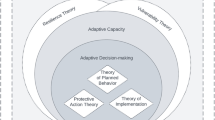
Overview
- Unprecedented compilation of ecological and management knowledge regarding global rangelands
- Content founded on the contributions of 80 authors with decades of experience in global rangelands
- In-depth recommendations to reorganize management and policy to more effectively support rangeland systems in 21st century
Part of the book series: Springer Series on Environmental Management (SSEM)
Buy print copy
Tax calculation will be finalised at checkout
About this book
This book provides an unprecedented synthesis of the current status of scientific and management knowledge regarding global rangelands and the major challenges that confront them. It has been organized around three major themes. The first summarizes the conceptual advances that have occurred in the rangeland profession. The second addresses the implications of these conceptual advances to management and policy. The third assesses several major challenges confronting global rangelands in the 21st century. This book will compliment applied range management textbooks by describing the conceptual foundation on which the rangeland profession is based. It has been written to be accessible to a broad audience, including ecosystem managers, educators, students and policy makers. The content is founded on the collective experience, knowledge and commitment of 80 authors who have worked in rangelands throughout the world. Their collective contributions indicate that a more comprehensive framework is necessary to address the complex challenges confronting global rangelands. Rangelands represent adaptive social-ecological systems, in which societal values, organizations and capacities are of equal importance to, and interact with, those of ecological processes. A more comprehensive framework for rangeland systems may enable management agencies, and educational, research and policy making organizations to more effectively assess complex problems and develop appropriate solutions.
Similar content being viewed by others
Keywords
Table of contents (17 chapters)
-
Front Matter
-
Processes
-
Front Matter
-
Editors and Affiliations
About the editor
David D. Briske is the T.M. O’Connor Professor in the Department of Ecosystem Science & Management at Texas A&M University, U.S.A. He earned a B.A. in Botany from North Dakota State University and a Ph.D. from Colorado State University. His scholarship and pedagogy emphasize the ecological function and management strategies of global rangelands. He has served as editor of the book ‘Conservation Benefits of Rangeland Practices’ and the journal ‘Rangeland Ecology & Management’.
Bibliographic Information
Book Title: Rangeland Systems
Book Subtitle: Processes, Management and Challenges
Editors: David D. Briske
Series Title: Springer Series on Environmental Management
DOI: https://doi.org/10.1007/978-3-319-46709-2
Publisher: Springer Cham
eBook Packages: Earth and Environmental Science, Earth and Environmental Science (R0)
Copyright Information: The Editor(s) (if applicable) and The Author(s) 2017
Hardcover ISBN: 978-3-319-46707-8Published: 25 April 2017
Softcover ISBN: 978-3-319-83568-6Published: 21 July 2018
eBook ISBN: 978-3-319-46709-2Published: 12 April 2017
Series ISSN: 0172-6161
Series E-ISSN: 2512-5559
Edition Number: 1
Number of Pages: XV, 661
Number of Illustrations: 32 b/w illustrations, 69 illustrations in colour
Topics: Environmental Management, Environmental Law/Policy/Ecojustice, Ecology, Climate Change



